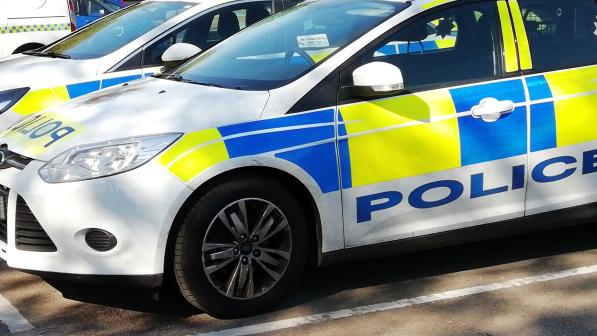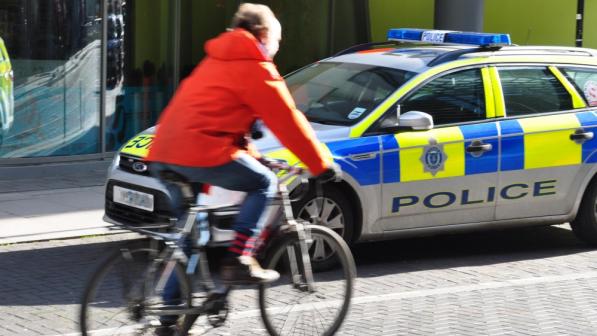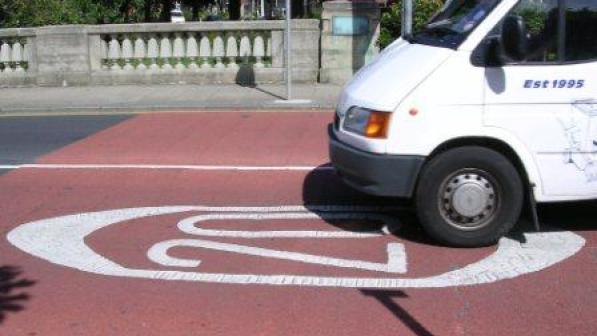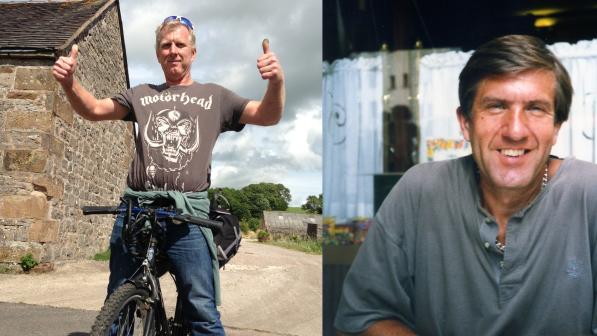Put speeding on your Police and Crime Commissioner candidates’ radar

Action Vision Zero’s 2021 manifesto, which Cycling UK is supporting, is targeted squarely at people who’d like to become or want to be re-elected as Police and Crime Commissioners (PCCs). Elections for the roles are due in May (except for Manchester and London, where mayors fullfil PCC duties).
The manifesto invites candidates to prioritise road safety by making five commitments, one of which is to tackle speeding.
The speeding threat
Cars are big, heavy things; pedestrians, cyclists and children are considerably smaller and lighter. If they’re hit by a big, heavy thing, it’s a miracle if they don’t come off worse. And the faster the thing’s being made to go, the harder it is to get out of the way or for drivers to brake in time, and the more life-threatening any injuries are likely to be.
This is doing nothing other than stating the obvious.
‘Exceeding speed limit’ or ‘travelling too fast for conditions’ are often ticked as contributory factors (CFs) by police officers at the scene of road traffic incidents: these CFs featured in very nearly a quarter of fatal crashes on Britain’s roads in 2019.
‘Failing to look’ just tops that at a little over a quarter– in fact, as usual, it ranks first – but ‘loss of control’ and ‘driver/rider careless, reckless or in a hurry’ are highly ranked in fatal cases too. All three of these factors are often associated with illegal speeds and/or travelling too fast for the conditions.
This is enough to alarm anyone, but it’s ‘pedestrian failed to judge vehicle’s path or speed’ that strikes me as especially sad. Implicated in 6% of the fatal collisions in which officers assign one of more CFs, this is far from insignificant (officers have just under 80 CFs to choose from, can tick up to six and not all crashes involve pedestrians).
Why does this make me especially sad? It’s because judging speeds above 20 mph is something that children may not be able to do: “… vehicles traveling faster loom less than slower vehicles, which creates a dangerous illusion in which faster vehicles may be perceived as not approaching”, say the authors of a paper looking into ‘visual looming’ in the context of children trying to cross the road.
What do we do about this? Stop children crossing the road to see their friends, go to the park or school? Or do we make it clear that inappropriate/illegal speeding is socially intolerable?
Speeding and police action
Police officers who not only confront the aftermath of fatal and serious road crashes, but must somehow deal with them, clearly have – or ought to have – a vested, human interest in tackling illegal and/or inappropriate speeding. That’s stating the obvious too.
Bizarrely, though, by no means all police forces are keen to enforce 20 mph limits and some won’t even support plans for them unless the schemes are ‘self-enforcing’ and, as such, not going to add to their officers’ routine workload. This is despite the popularity that these limits enjoy: over 70% of the public in England are in favour of them in residential areas.
It’s not surprising – obvious, you might say – that the public also tends to think that the likelihood of an officer catching anybody who’s exceeding the speed limit is miniscule.
Many communities find this level of impunity seriously disturbing, so much so that they do something about it themselves through Speedwatches. Equally disturbed are any existing or would-be cyclists paling at the thought of people rocketing past in big, heavy objects.
But some drivers no doubt thank their lucky stars.
It’s true that police resources, and particularly roads policing resources, aren’t nearly as generous as they need to be and there are a myriad of competing demands on them. This needs to change. After all, travelling fast enough to put other people in danger and breaching speed limits are crimes, and commonly committed crimes at that.
Of course, all the other road traffic offences on the books are crimes too; and being aware that there’s a high chance of being detected and subsequently prosecuted for them is a mighty deterrent. And there we have a further couple of rather obvious points.
But what perhaps isn’t nearly as obvious as it ought to be to everyone whose duty it is to protect the public from harm is this: speeding is an offence for good reason and, on top of that, road crime is real crime.
Take action now
Some PCCs, whose role is crucial because they set their forces’ priorities, are already persuaded of the importance of roads policing.
But if this hasn’t yet dawned on any candidates for the PCC elections in May, hoards of the electorate pointing them to Action Vision Zero’s Manifesto for Change will help it dawn on them, so please join the hoards and take action now.




